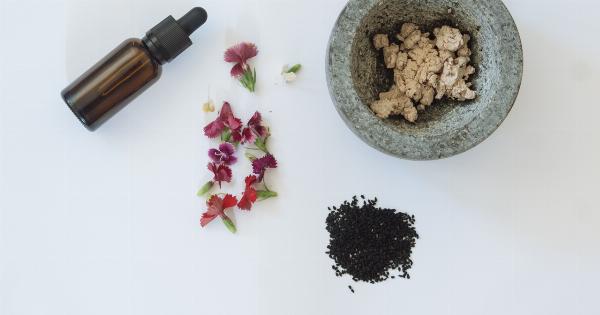Sexual desire is one of the most cherished human experiences that affect virtually everyone in one way or the other, but sometimes certain factors unknowingly sap this desire.
One of these factors can be certain lotions or creams that may contain chemical substances that may interfere with the body’s natural hormone balance and libido. If you are experiencing a sudden loss of libido, a particular lotion could be the culprit, and in this article, we will explore some of these lotions.
What Makes a Lotion Kill Libido?
A lotion can be marketed or prescribed for a variety of reasons without consumers being aware of its potentially serious side effects, such as reducing libido.
Certain ingredients in lotions that claim to relieve skin conditions such as eczema, acne, wrinkling, or dryness can lead to a decreased sex drive and libido if these substances interfere with hormonal balance or function. These ingredients include the following:.
1. Parabens
Parabens are synthetic chemicals commonly used in skincare products. They work by preventing bacterial and fungal growth in the product, thus extending its shelf life.
However, they mimic estrogen in the body and can interfere with hormonal balance leading to a decreased sex drive, particularly in males. Parabens may be found in many lotions, creams, and other skincare products.
2. Phthalates
Phthalates are a group of synthetic chemicals commonly used to make plastic malleable. They are also used in personal care products such as lotions, makeup, and perfumes to enhance the fragrance and texture of the product.
However, phthalates can also mimic estrogen in the body, leading to an imbalance in hormone levels, particularly testosterone, which plays a vital role in libido.
3. Petroleum Jelly
Petroleum jelly is a mineral oil derivative commonly used to moisturize and protect the skin. It is also used regularly as a carrier ingredient in skincare products such as lotions, creams, and ointments.
While it is considered safe for external use, it could negatively impact your libido due to its occlusive properties since it creates a barrier on your skin’s surface, which can trap heat, sweat, and bacteria, ultimately leading to potential skin and body toxicities, including disrupted hormone levels.
4. Alcohol
Many skincare products contain alcohol, which can dry the skin and cause irritation if excessively applied or overused.
This drying effect can extend to other parts of the body, including the genitals, potentially leading to decreased libido in men, particularly, if used in excess.
5. Synthetic Fragrances
Many lotions contain synthetic fragrances that can be harmful to the body and libido. Synthetic fragrances are based on chemicals and can cause headaches, allergies, and hormonal imbalances, all of which can negatively impact sexual arousal and desire.
Synthetic fragrances mask the product’s natural odor, giving it a sweet scent that appeals to consumers, but unfortunately, their harm extends to the hormonal balance that triggers sexual arousal in the body.
6. Glyceryl Stearate
Glyceryl stearate is a common ingredient in many lotions, creams, and personal care products.
The addition of glyceryl stearate to skincare products reduces the surface tension of the ingredients in the lotion and ensures the lotion is easy to spread and massage into the skin.
However, glyceryl stearate diethanolamide (GSE) has been identified as a potential hormone disruptor, particularly in males, as it imitates the effect of estrogen in their bodies and could affect the production of testosterone, the hormone responsible for sexual desire.
7. Silicone
Silicones are popular ingredients in skincare products. They form a barrier on the surface of the skin, locking in the skin’s moisture.
Silicones can also bind the product to the skin, ensuring that the product’s active ingredients remain on the skin long enough to provide the desired effect. However, silicones can cause a decrease in libido because they don’t allow the skin to breathe. This lack of air flow can lead to irritation, itching, and rashes, further lowering libido.
8. Sulfates
Sulfates are a group of synthetic compounds that are widely used in skincare products, specifically in their ability to form lather, removing dirt and oil as they go.
Sulfates can cause irritation to the skin as they strip away natural oils and with time; they create a dry and itchy skin condition. When it comes to libido, sulfates can interfere with the delicate balance of hormones in the body, leading to a decrease in sexual drive and energy.
9. Hydroquinone
Hydroquinone is a chemical commonly found in skincare products touted for its skin-lightening properties. The chemical works by suppressing melanin production and reducing hyperpigmentation.
However, hydroquinone has known to cause hormonal imbalances, further leading to low libido. Hydroquinone can also be a potential irritant to the skin and potentially irritate the genitals, leading to a decrease in sexual arousal and desire.
10. Retinoids
Retinoids are a group of chemicals derived from Vitamin A. They are used in skincare products to help fight the signs of aging, acne, and allergies.
Retinoids can be abrasive and leave the skin dry, which can lead to pain and irritation during sexual activities. Retinoids can also lower libido, especially when used excessively.
Conclusion
It is essential to be aware of the possible side effects when using and applying lotion on your skin.
Many chemicals that cause a decrease in libido are widely used in cosmetics products as preservatives, fragrance carriers, moisturizers, and skin lighteners. In conclusion, if you notice a sudden change in your libido, consider examining the lotions, creams, and skincare products you have been using that may contain some of these chemicals.
In the meantime, you may opt for natural and organic skincare products that contain fewer or no chemicals that imitate natural hormones and can, therefore, contribute to a healthy sex life.




























